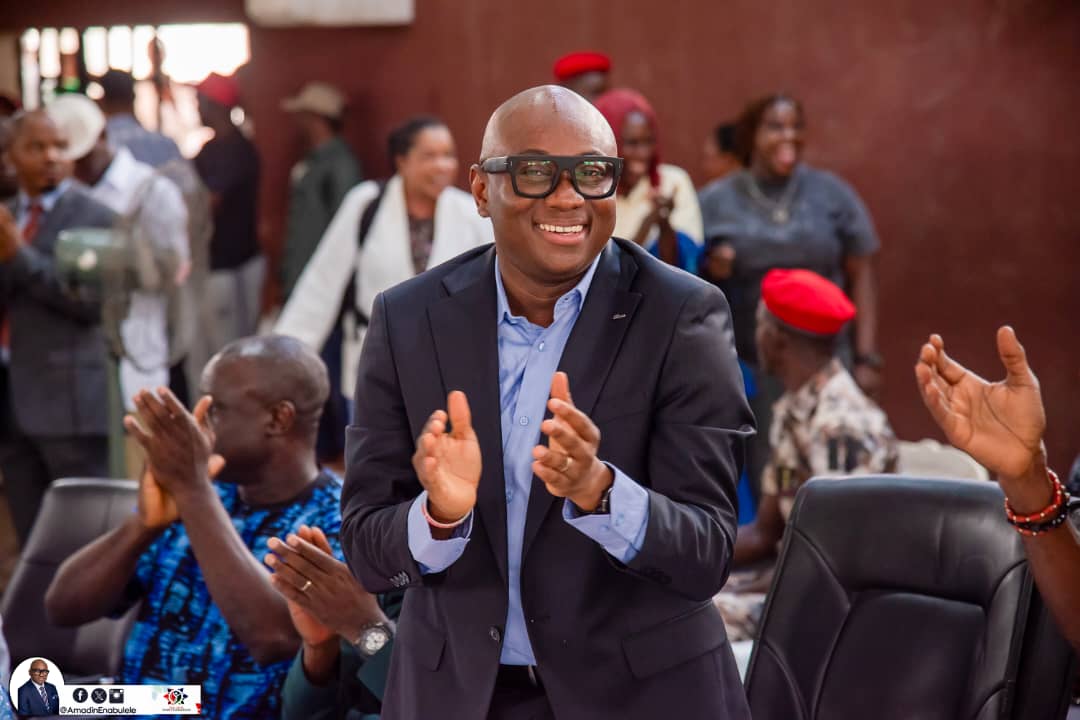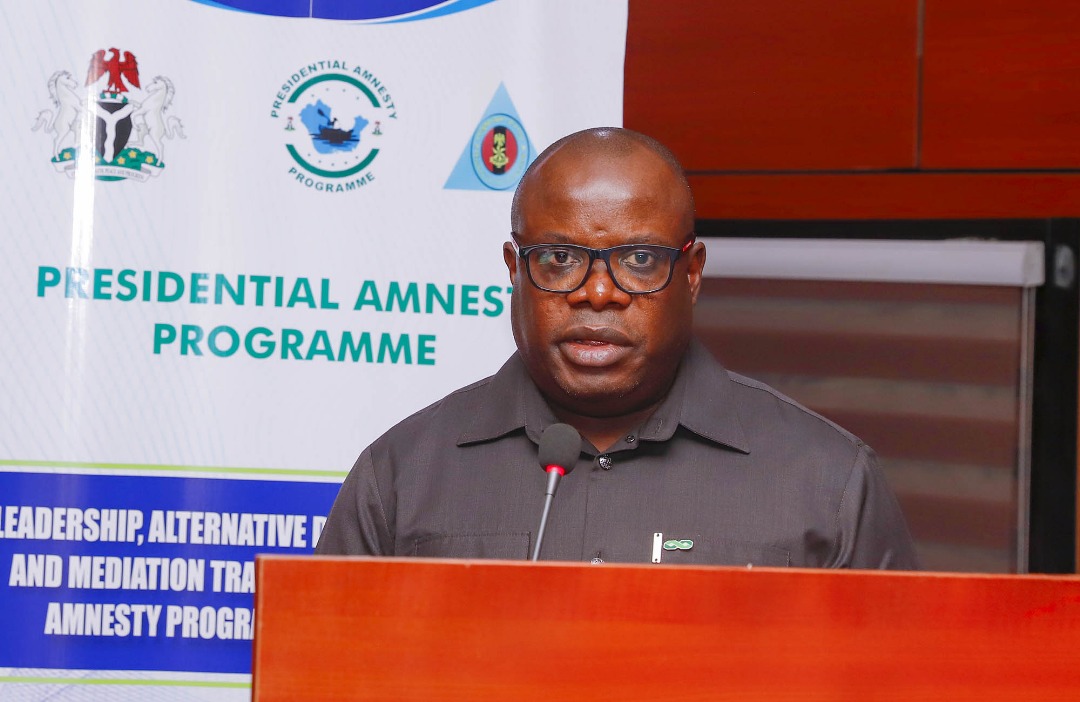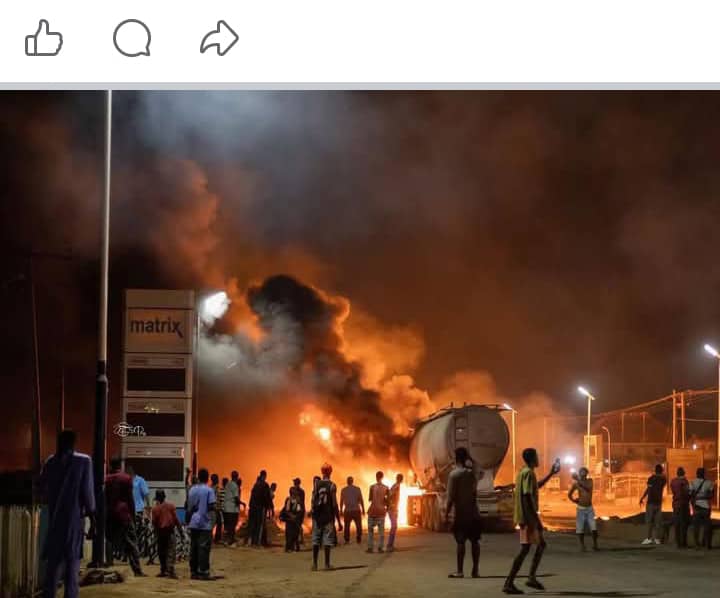News
Four Killed, Eight Hospitalised In Louisville Shooting

Four people were killed and at least eight others injured Monday in a shooting targeting a bank in downtown Louisville, Kentucky, according to US police who said the suspect — believed to be an ex-employee — died in the assault.
Police said calls had come in around 8:30 am (1230 GMT) for an “active aggressor” at the Old National Bank in Louisville, the largest city in the southern state, and that officers were on the scene within “minutes.”
Officers “encountered the suspect almost immediately, still firing gun shots,” Louisville police deputy chief Paul Humphrey told a press conference, adding that the shooter had died at the scene.
“We’re trying to confirm if that suspect died of a self-inflicted gunshot wound or was killed by officers,” Humphrey said.
READ ALSO: Delta: Police Arrest Man After Friend Dies Of Drug Overdose In His House
At least four other people were killed in the bank and eight were being treated for injuries at University of Louisville hospital, including two officers who were wounded in the exchange of gunfire, Humphrey added.
Police had initially given a death toll of five, but subsequently clarified that that figure included the shooter.
Two people were in critical condition, including one of the officers.
“It is clear from the officers’ response that they absolutely saved people’s lives,” said Humphrey.
Police were working to identify the victims, as well as establish the shooter’s link to the bank.
READ ALSO: Why I Quit Banking Job For Big Brother Naija – Tobi Bakre
“We believe this is a lone gunman involved in this, that did have a connection to the bank,” Humphrey said, adding that “it appears he was a previous employee.”
Humphrey reiterated that there was no longer an active threat and urged residents to stay clear of the scene during what was expected to be a long investigation, likely to go “into the night.”
Windows ‘blown out’
The incident triggered a massive police deployment outside the Old National bank building.
CNN reported that some people had been able to take refuge in the bank vault and lock themselves in — contacting police from inside.
Fox affiliate WDRB cited a witness saying she heard multiple gunshots and breaking glass while in her car at an intersection near the site.
READ ALSO: Kukah To Nigerians: Reclaim The Nigeria We Knew Before Buhari
“Gunfire erupted, like, right over my head,” said the woman, who gave her name only as Debbie. “When I turned, I saw that one of the windows in the bank had been blown out,” she added.
Governor Andy Beshear tweeted: “Please pray for all of the families impacted and for the city of Louisville.”
The United States, a country of around 330 million people, is awash with some 400 million guns, and deadly mass shootings are a regular occurrence.
Efforts to tighten gun controls have for years run up against opposition from Republicans, staunch defenders of America’s constitutional right to bear arms. The political paralysis endures despite widespread outrage over recurring shootings.
In the latest illustration of the deadlock, two Tennessee lawmakers were expelled from the state legislature last week after staging a floor protest calling for tougher gun control, in the wake of a deadly shooting at an elementary school in Nashville.
Monday’s mass shooting in Louisville was the 146th of the year according to data from the Gun Violence Archive — defined as incidents in which four or more people were shot or killed, excluding the assailant.
AFP
News
Grassroots To Global Podium: Edo Sports Commission Marks Enabulele’s First Year In Office

The Indoor Sports Hall in Benin City came alive on Wednesday as the Edo State Sports Commission rolled out the drums to celebrate the first anniversary in office of its Executive Chairman, Hon. Amadin Desmond Enabulele. Management, staff, coaches and athletes gathered in an atmosphere charged with pride, reflection and optimism.
The colourful ceremony drew executives and members of various sports associations, officials of the Sports Writers Association of Nigeria (SWAN), coaches, athletes and other key stakeholders in Edo sports.
In her welcome address, the Acting Permanent Secretary of the Commission, Mrs. A. P. Amenze, praised Hon. Enabulele for what she described as focused and purposeful leadership. She said the past year had seen renewed confidence, discipline and energy return to the state’s sports ecosystem.
Adding excitement to the event were exhibition bouts and demonstrations by the Kung Fu, Karate, Taekwondo and Judo associations, staged in honour of the Executive Chairman.
READ ALSO:2025 NYG: Enabulele Charges Edo Coaches On Performance
Speaking for SWAN Edo State, Chairman Comrade Kehinde Osagiede commended Hon. Enabulele’s open-door leadership style and consistent support for sports development. He noted that the Commission had effectively driven Governor Monday Okpebholo’s “Catch Them Young” policy through practical grassroots programmes that identify and groom young talents across the state.
In recognition of his contributions to sports development and media relations, Comrade Osagiede conferred the Patronship of SWAN Edo State on Hon. Enabulele and presented him with a special anniversary card.
Goodwill messages followed from Executive Directors of the Commission, including Hon. Frank Ilaboya (Edo North), Coach Baldwin Bazuaye, MON (Edo South), Barr. Anthony Ikuenobe (Edo Central), and Mrs. Sabrina Chikere, Executive Director, Sports Development and Operations. Representatives of coaches, athletes and sports associations also took turns to acknowledge the progress recorded under the current leadership.
In his stewardship address, Hon. Enabulele expressed gratitude to Governor Monday Okpebholo and Deputy Governor Rt. Hon. Dennis Idahosa for the trust placed in him, noting that their backing and shared vision had driven the Commission’s achievements.
READ ALSO:Enabulele Lauds Okpehbolo For Creating Enabling Environment For Football To Thrive
He highlighted Team Edo’s third-place finish at the 9th National Youth Games in Asaba, where the state recorded its best-ever outing with 79 medals—33 gold, 18 silver and 28 bronze—reinforcing Edo’s reputation as a national sports powerhouse.
The Chairman also pointed to the impact of inclusive and grassroots sports programmes, citing Favour Ojeabu, a visually impaired para-cyclist who won three gold medals to emerge Africa’s champion at the African Track Para-Cycling Championship in Egypt.
Other milestones listed included outstanding performances by Edo para powerlifters on the international stage, historic achievements in cricket, weightlifting, cycling, judo and deaf athletics, as well as structural reforms such as the repositioning of Bendel Insurance FC and deeper investment in grassroots sports development.
Cultural performances added colour and tradition to the celebration, as stakeholders closed the event united in their assessment of the past year as a truly transformative period for sports development in Edo State.
News
Otuaro Tasks Media On Objective Reportage

The Administrator, Presidential Amnesty Programme (PAP) Dr. Dennis Otuaro has charged media practitioners particularly members of the Ijaw Publishers’ Forum to promote ethical journalism through their reportage.
He gave the charge in Warri on Wednesday during the 2nd Annual Ijaw Media Conference organised by the Ijaw Publishers’ Forum (IPF).
Represented by Princewill Binebai, spokesman, Ijaw Youth Council (IYC) Worldwide, Otuaro while stating that the Niger Delta stories have been told in such a way that is quite different from what is obtainable in the real sense, said this, IPF must do everything possible to correct.
The administrator added: “I am happy that Ijaw journalists have boldly come out together to champion the Ijaw struggle in a very dynamic perspective”.
READ ALSO:IPF Hosts Media Conference, Seeks Protection For N’Delta Environment
“The Ijaw story was misrepresented over the years, but IPF’s emergence had corrected this error and the story is gradually changing for better.”
Otuaro, however, challenged Ijaw media practitioners to be objective, truthful, accurate and fearless in their reportage to correct many years anomalies of the Ijaw struggle.
He admonished members of IPF to see themselves as brothers and love one another in the discharge of their activities to achieve a common goal.
News
Police Confirm Edo Tanker Explosion, say No Casualty

The Edo State Police Command has confirmed tanker explosions that rocked Auchi, the administrative headquarters of Etsako West Local Government Area of the state.
The Command’s Police Publice Relations Officer, Eno Ikoedem, who confirmed the incident via the phone, said the explosion occurred at about 6:30 p.m. following the fall of a fuel tanker along the road.
Ikoedem said the incident occurred on Wednesday evening at about 6:30 p.m. following the fall of a fuel tanker along the road.
READ ALSO:Edo SSG Calls On Media To Support Govt Policies, Assures Better Welfare
She explained that spilled fuel seeped into underground tunnels, which later ignited and caused three explosions in different parts of the Auchi community.
According to her, officers from the Auchi Divisional Police Headquarters and the Area Command were mobilised to the affected areas and successfully cordoned them off to prevent loss of lives.
She added: “No casualty was recorded. Our men on ground were able to cordoned the affected areas.”
READ ALSO:Edo Assembly Declares Okpebholo’s Projects Unprecedented
It was gathered that three separate explosions rocked the town simultaneously in different parts, which led to properties worth millions of naira destroyed.
A resident who does not want his name in print said via the telephone that the blasts occurred along Igbei Road, Igbo Shade, and along the Auchi–Okene Road, close to Winners Junction.
The resident, who alleged the explosions appeared to have been coordinated, called for a thorough investigation into the incident to prevent future occurrences.
Calls put across to Mr. Monday Edogiawere, Chairman, Red Cross, Edo State, were not picked.

 Metro4 days ago
Metro4 days agoSuspected Kidnappers Abduct 18 Passengers On Benin-Akure Road

 News4 days ago
News4 days agoI’m Not Distracted By Anti-Niger Delta Elements, Says PAP Boss, Otuaro

 News4 days ago
News4 days agoOPINION: Time For The Abachas To Rejoice

 News3 days ago
News3 days agoWage Dispute: Court Orders PSG To Pay Mbappe €61 Million

 Sports3 days ago
Sports3 days agoJUST IN: Dembélé Named FIFA Best Men’s Player, Bonmatí Wins Women’s Award

 News4 days ago
News4 days agoEdo Assembly Charges Contractor Handling Ekekhuan Road To Accelerate Work

 Metro4 days ago
Metro4 days agoNDLEA Seizes 457kg of Cannabis, Arrests Suspected Trafficker In Edo

 Headline3 days ago
Headline3 days agoAircraft Crashes In Owerri With Four Persons Onboard

 Business3 days ago
Business3 days agoCBN Revokes Licences Of Aso Savings, Union Homes As NDIC Begins Deposit Payments

 News4 days ago
News4 days agoEx-Nigerian Amb., Igali, To Deliver Keynote Address As IPF Holds Ijaw Media Conference




















